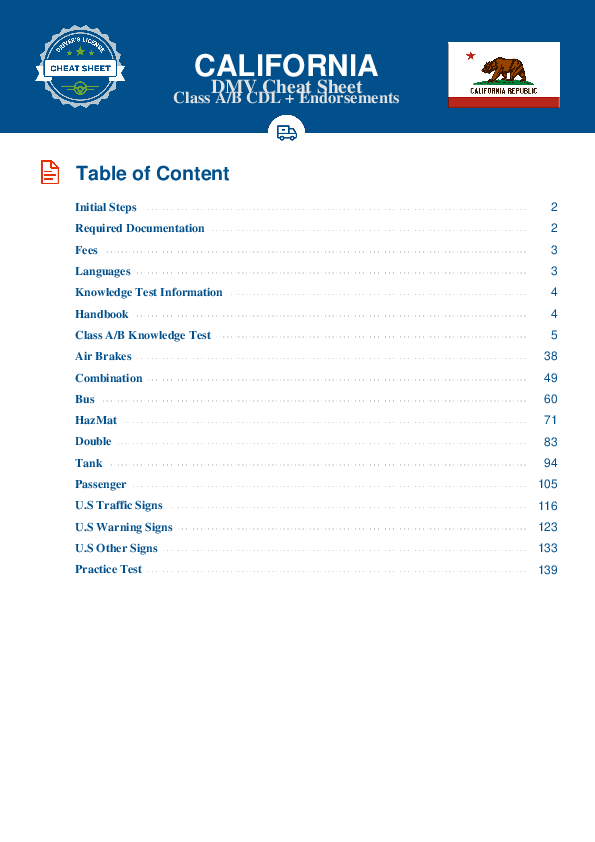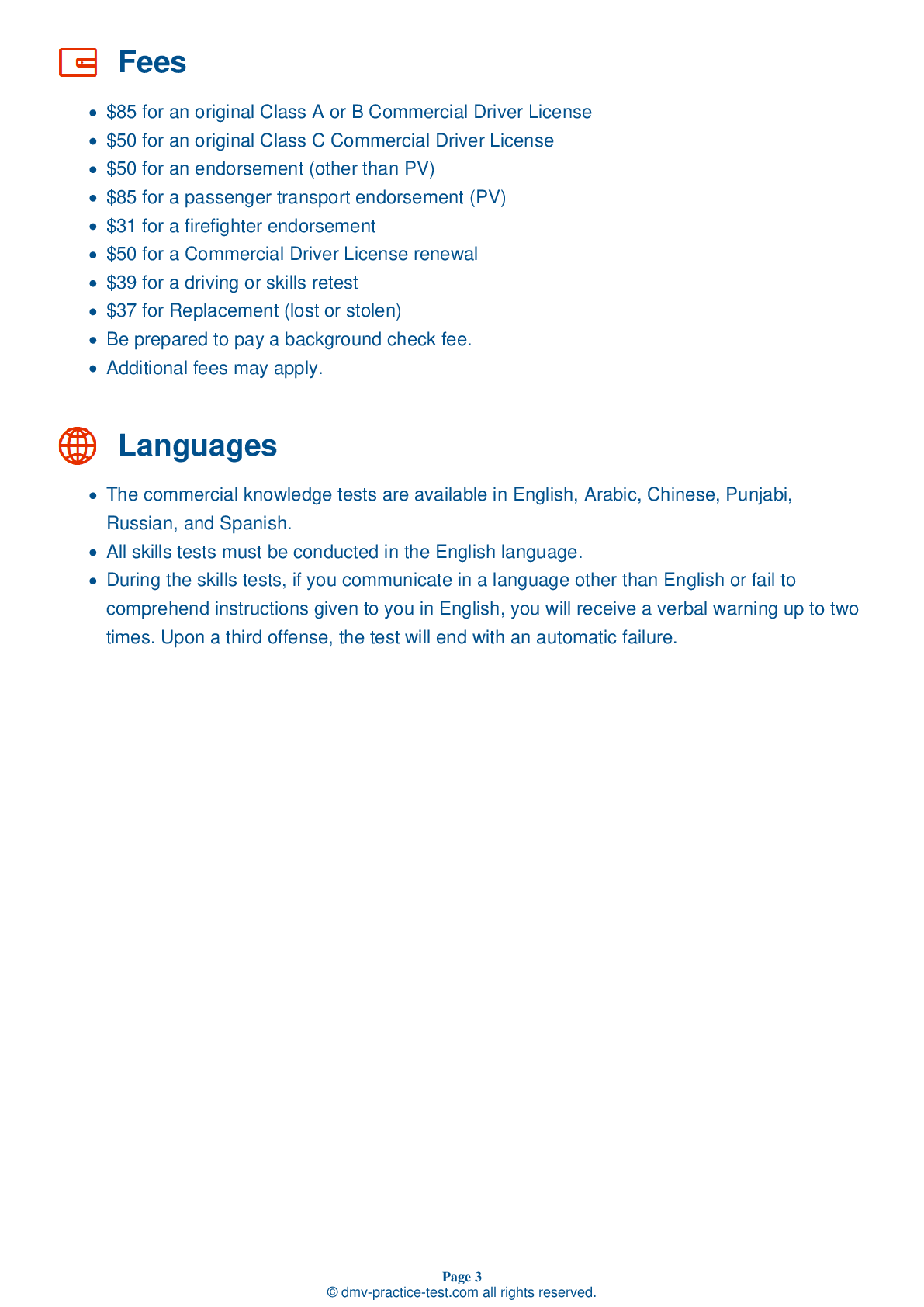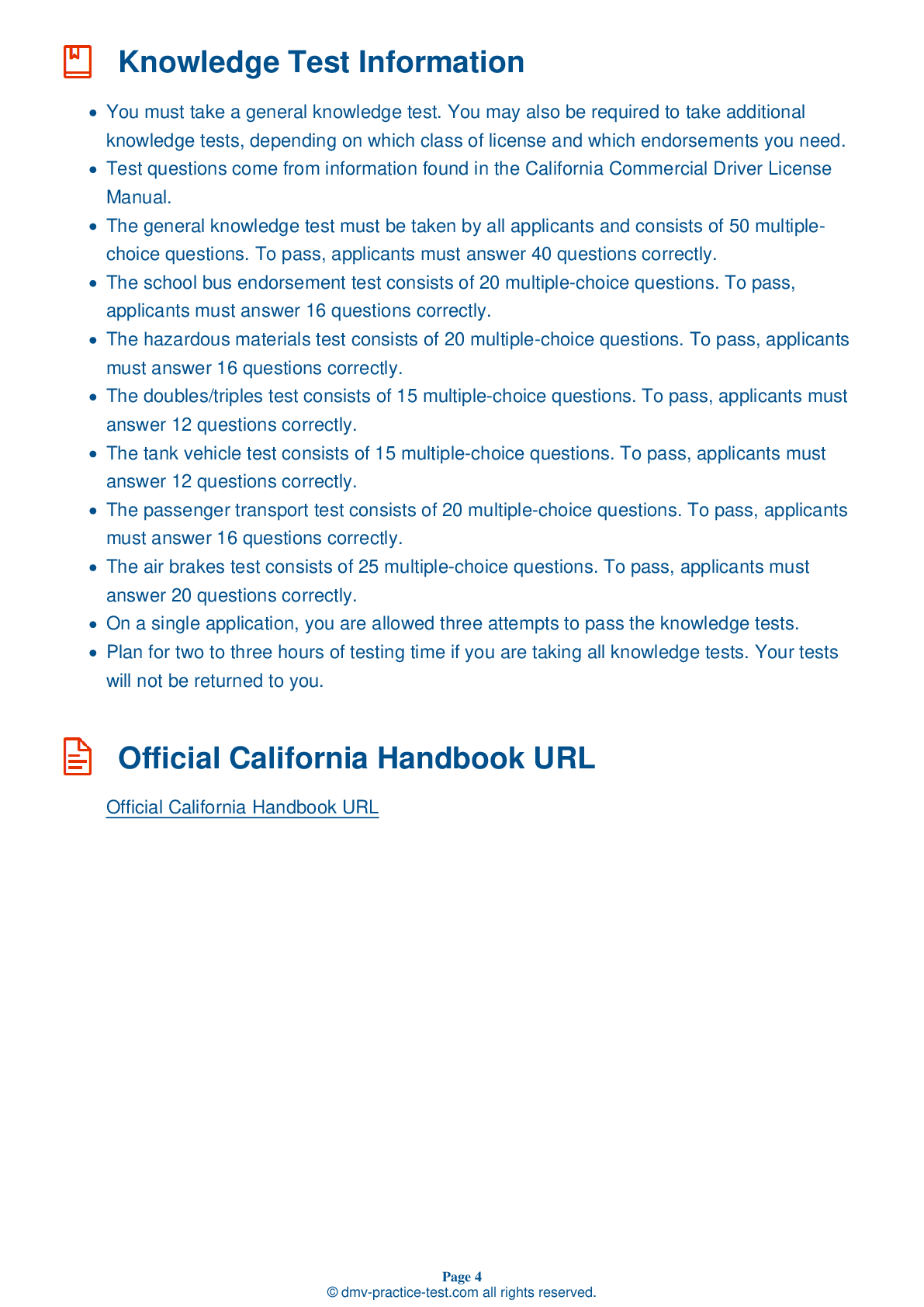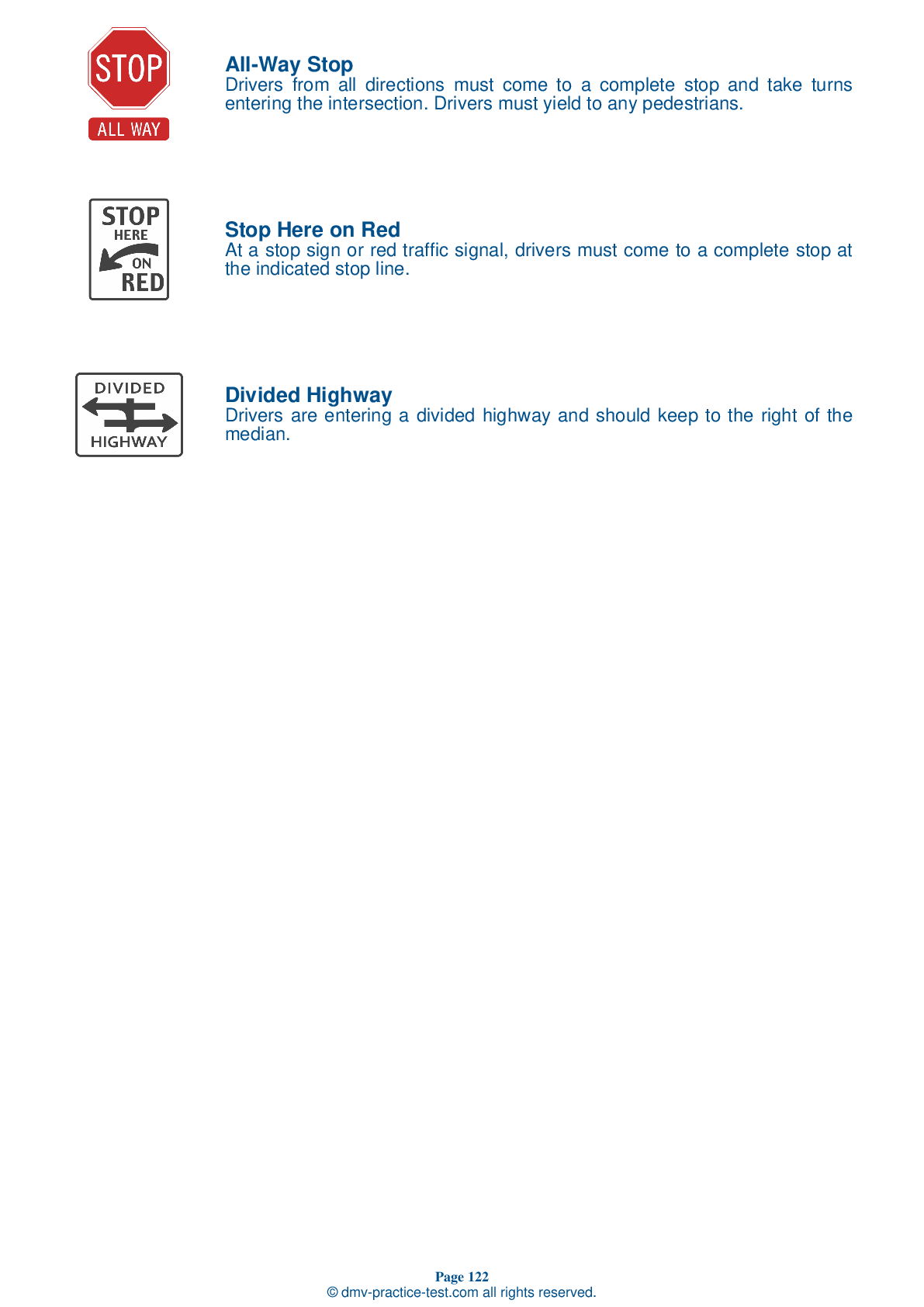Passenger Endorsement | California 2026 #2
Train for FREE with our California CDL passenger endorsement practice test online. The official exam test consists of several obligatory parts, with all of them checking your knowledge of different blocks of road rules. If you need to obtain a CA DMV passenger endorsement in 2026, practice as much as possible. Free sample tests published on our website will help you check and improve your knowledge and boost your grades. Please bear in mind that DMV requirements for issuing a CDL permit with passenger endorsement may vary from state to state.
1 . A tread depth of ____ should be in every major groove of a tire that is not in the front of a commercial motor vehicle.
For safe operation, a commercial motor vehicle needs a tread depth of 4/32 of an inch in every major groove on the front tires, and a tread depth of 2/32 of an inch on other tires.
2 . When approaching a railroad crossing, a bus driver should:
When approaching a railroad crossing, bus drivers should stop their vehicle between 15 and 50 feet from the nearest track and look both ways for a train. The driver should not proceed until they are certain no trains are approaching.
3 . When braking with ABS, you should:
When braking a vehicle equipped with an Anti-Lock Braking System (ABS), you should not brake any differently than you would if driving a vehicle with a different braking system.
4 . During the basic control skills test, you will receive points if you:
The examiner will score the number of times your vehicle touches or crosses an exercise boundary line. Each encroachment will count as an error, resulting in points against your skills test score.
5 . When completing a conventional parallel parking maneuver, you should:
You may be asked to complete a conventional parallel parking maneuver into a parking space that is to the right of your vehicle. You should drive past the parking space before backing into it while bringing the rear of your vehicle as close to the rear of the space as possible. Your vehicle should be completely within the boundaries of the space.
6 . You should check and adjust your mirrors:
Be sure to check your mirrors before beginning a drive. Your posture may change day to day and your mirrors may need to be adjusted.
7 . When inspecting the interior of a bus, you should:
When inspecting the interior of a bus, you must make sure everything is safe and in proper working condition. Make sure all signaling devices, such as bathroom emergency buzzers, work properly.
See the exact questions that will be on the 2026 California DMV exam.
99.2% of people who use the cheat sheet pass the FIRST TIME
Lillian MCcranie explains how our CDL study guide was helpful in passing the exam and recommends it to everyone.
Cameron tells us how he purchased the CDL exam, and found it to be a useful tool which helped him pass the exam and find a job.



